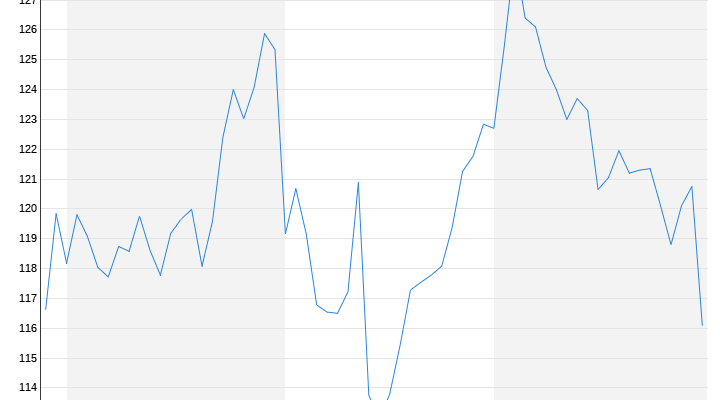Weak start to the year
VW sees the engine starting again – demand is increasing
April 30, 2024, 5:02 p.m
Europe’s largest car manufacturer has not yet gotten going at the start of the year. Engines were not available at the Audi subsidiary and things were slow in the luxury division. But according to CFO Antlitz, business picked up in March. This should have an impact on the figures in the current quarter.
Delivery problems with some Audi engines and poorer business with luxury cars caused Volkswagen’s profits to collapse at the beginning of the year. At 4.6 billion euros, the operating result in the first quarter was a fifth below the level of the previous year, as the DAX group announced. The car manufacturer justified this with lower sales volume, an unfavorable country, brand and model mix and higher fixed costs. Even after taxes, a fifth less remained in the cash register at 3.7 billion euros.
The results reflected the expected slow start to the year, said CFO Arno Antlitz. At the same time, the company is confident that it will achieve its goals for the current year. “A strong March, the solid order situation and the improving order intake in recent months are encouraging and should already have a positive impact in the second quarter,” he emphasized. Volkswagen, however, stuck to its largely positive expectations for this year and still expects sales to increase by five percent.
Savings programs are expected to have an impact in 2024
From January to the end of March, annual revenue fell by one percent to 75.5 billion euros, and the operating profit margin fell accordingly by 1.4 percentage points to 6.1 percent. It was therefore well below the target for the current year of 7 to 7.5 percent. According to the information, an important reason for the decline is delivery bottlenecks at Audi: Revenues fell significantly here because V6 and V8 engines were temporarily not sufficiently available.
At Porsche, too, business wasn’t going as smoothly as usual. High upfront costs for new models and weak sales reduced the sports car manufacturer’s profits by almost a third. However, things looked better in the Core volume group, which includes the core brand Volkswagen as well as Skoda, Seat/Cupra and the commercial vehicle division with the VW bus.
CEO Oliver Blume has prescribed a billion-dollar savings program for the Wolfsburg-based car manufacturer. For the core brand Volkswagen alone, costs are expected to fall by ten billion euros by 2026, while the return is expected to increase to 6.5 percent. The group has even set a target of eight percent for the entire brand group. The programs should begin to have an impact over the course of 2024, Antlitz said.
Recovery in electric cars
Sales, which are crucial for sales, fell by two percent to 2.08 million cars in the first three months. While dealers handed over more cars to customers than a year before, the group sold fewer vehicles to these same dealers, which reduced revenue.
Above all, the weak new business was causing problems for the group, especially with electric cars. After the state purchase bonus was abolished at the end of 2023, demand here literally collapsed. In the meantime, business with the electric vehicles that are important for VW is picking up again, said Antlitz. “We had a weak January, but February and March were strong.” Compared to the previous year, the number of newly ordered electric vehicles more than doubled in the two months. In Europe alone, the order backlog currently stands at 1.1 million vehicles, of which 160,000 are electric cars.
